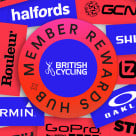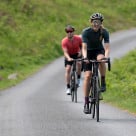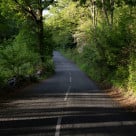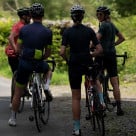![]() Follow britishcycling.org.uk on
Follow britishcycling.org.uk on ![]()
![]()
![]()
![]()
Great Britain Transplant Cycling Team
Story posted February 3, 2010: Source: Richard Smith
British Cycling website has received an interesting article from the British Transplant Cycling team. The team is keen to raise sponsorship as well as heighten awareness of organ donation and transplantation.

Performance history and Sponsorship opportunities
In August 2009, 5 British cyclists, all of who have had life supporting organ transplants, travelled to the Gold Coast in Australia as part of a British Team to compete in the 17th World Transplant Games.
The biggest and best attended games to date, the team’s success has created an appetite to increase the size, profile and competitiveness of the team by making a compelling case for funding and/or sponsorship.
This document aims to
-- Highlight the successes and development areas for the team.
-- Identify how the team can better promote transplantation and organ donation if financial support was available.
-- Ensure that commercial, governmental and philanthropic sponsors and supporters understand the benefits to their organisation in being connected to the team.
-- Analyse how to build on the team’s achievements and win more medals
Background
The idea of Consultant Surgeon, Maurice Slapak CBE, the first Transplant Games were held in Portsmouth in 1978. Attended by some 99 transplant athletes from the UK and abroad, they were the inauguration of both the British and the World Transplant Games. The Games were a great success not only as a sporting event, but also in their main objective – that of raising public awareness of the benefits of organ donation and transplantation.
Subsequently, the World Transplant Games Federation has been staging international sporting events for transplant athletes in order to demonstrate the physical success of transplant surgery and to continue raising awareness of the need to increase organ donation.
The Summer World Transplant Games take place every two years where over 1500 athletes representing some 69 countries compete at an extraordinarily high level. Many however just come to enjoy taking part at their own pace and welcome the opportunity to meet with other transplant recipients in an atmosphere of fun and friendship.
Supported by the International Olympic Committee, the World Transplant Games represent the largest organ donor awareness event in the world and is open to all recipients of a life supporting organ transplants include bone marrow.
The UK Team is normally the largest team usually consisting of 150 athletes together with a management team, sport specific coaches, medical support including physiotherapists and supporters. Since inception, cyclists have formed an important and successful part of the team taking between four and nine riders to every event
Two key events for transplant cyclists are the annual British Transplant Games and the European Transplant and Dialysis Games.
Transplanted cyclists compete regularly in open non-transplant specific events with some notable wins including the 2009 Veterans Road Race title in Shropshire and South Staff Cycling Clubs Road Race League.
Relevant links are below
www.wtgf.org (World Transplant Games Federation)
www.transplantsport.org.uk (Transplant Sport UK)
http://2010newlife.com (European Transplant and Dialysis Games)
http://www.transplantsport.it/euregiotour (3 day stage event)
Performance history
The notable successes of the GB cycling team are outlined below
-- 1999 Budapest, Hungary. Bronze medal in the road race (Adult male).
-- 2001 Kobe, Japan. Gold medal in the road race (Adult male)
-- 2003 Nancy, France. 5 Gold, 5 Silver and 1 Bronze medal (Adult male, Senior male, Adult women, Senior women)
-- 2005 London, Canada. 1 Silver and 1 Bronze medal (Senior Female)
-- 2007 Bangkok, Thailand. 5 Gold and 1 Silver medal (Adult male, Senior male, Senior female)
-- 2009 Gold Coast, Australia. 1 Gold, 3 Silver and 1 Bronze medal (Super senior male, Senior female and Senior male)
2003 in Nancy, France saw a team of 9 including 2 women for the first time win 11 medals altogether. The increase in the number of medals won was helped not only by the number of riders but by the introduction of the 5k time trial in addition to the 20k road race which saw the British team take 3 gold medals and set the worlds fastest 5k TT time at 7 minutes and 10 seconds. This remains the fastest time ever recorded at a World Games.
The 2009 Australian Games saw 5 riders pick up 1 gold, 3 silver and 1 hard fought bronze medal against a very competitive field including 112 cyclists from around the world.
Success criteria – How the help of a sponsor will make a difference
Funding and sponsorship is the key to future success. There are a great many variables that affect the results of GB cycling team from competition to competition some which are controllable and are therefore capable of being influenced and improved but only with financial assistance.
Presently, all riders are self-funding – there is no central financial support for the team from those sources most likely to contribute namely (Lottery, Government, Sport England, The NHS or large scale philanthropic entities). Riders need to raise money independently either by paying for themselves or seeking individual sponsors. Whilst this is also true of the entire team, the equipment costs of training and racing in cycling are far higher and this has prevented a number of riders with proven medal winning ability from attending events.
The lack of substantial long term funding for transplanted athletes may well be part due to what can only be described as a categorisation issue. A long running debate within the transplant community has focused around the ability/disability question. Should people with transplants be categorised as disabled (which would probably open up more funding sources) or does this go against the one of the founding principals for promoting organ donation – a huge improvement in the quality of life?
Whilst most transplant athletes have undergone invasive surgery and have to take powerful immuno suppressant drugs, which can have a debilitating effect, the fundamental success of transplantation is that it saves or hugely improves the quality of life – it re-enables rather than disables.
Whilst the debate continues, it seems anecdotally at least, the weight of the argument is against adopting a disabled tag.
Travel
Each rider is responsible for the transportation of their bike and equipment meaning if air travel is required, a secure bike box has to contain everything needed to race including support tools and equipment.
This limits equipment to an absolute minimum with space having to be found for a single track pump, spare tyres and tubes, a multi tool and the like. Something as simple as being able to take 2 extra bike cases with spare wheels and tools would reduce the risk of a simple mechanical failure or puncture taking a ride out of the race.
Travel to national events and training meetings in the UK is less of an issue but warm weather winter training abroad has to be self funded or foregone.
Equipment
Whilst other funded teams are able to take race specific equipment for both the time trial and the road race, the GB team have so far been unable too. For example, a number of national teams have been able to use disc wheels, specific low pro bikes and rollers/turbo trainers to warm up on. Both of cost of acquiring these and the logistics of transporting them is beyond the means of self-funded riders.
Those with a background in cycling will recognise that events of 5 – 10k are analogous to pursuit distances on the track – they are very short and require a significant anaerobic over threshold effort for a few minutes duration. The times separating rides are rarely more than a few seconds, more commonly parts of seconds, so the ability to have a specific well tried warm up is essential but, sadly, not always possible without rollers or a static trainer. However hard an athlete trains, missing a vital warm up is likely to mean a sub optimal performance.
In addition, whilst it is entirely true that riders win races, not bikes, the seconds or fractions of seconds available through the use of aerodynamic equipment in individual timed events makes a vital difference between medalling or not.
Training and fitness to compete
The team are drawn from across Great Britain and Northern Ireland and have, in the past, included riders based in Europe. This makes training meetings difficult and expensive although not impossible. The team now includes a British Cycling Level 2 Coach and value can be extracted from get togethers without the need to simply ride miles on the road. In particular, techniques and tactics for road racing can be practiced in a small none technical traffic free environment.
Usually, the entire teams meets 4 times in the year preceding a World Games and these training sessions could be better used by the cycling team if they could all attend.
Race fitness always remains the individual responsibility of the rider but support can be coordinated centrally in terms of providing training programmes and identifying suitable ‘non-transplant’ events that accessible. These range from local club/open time trials, road races, reliability trials and sportives etc.
The majority of riders will be taking a combination of drugs – most relevantly some form of immunosuppresent to prevent rejection. Whilst these drugs vary in effect and depend upon the tolerance of the individual and the dosage, they tend to have a minimal impact on athletic performance in otherwise fit individuals. Competitors at all transplant related events are monitored and a valid medical certificate from a Consultant is a prerequisite of participation.
Other countries and riders
Both the number and standard of riders has increased over the past 10 years. Many of the larger teams are fully supported by their respective national cycling bodies and commercial sponsors.
This was demonstrated in the Australian games by
-- In only one of the male age related categories were both the time trial and the road race won by the same individual (50–60 age group).
-- irrespective of age categories, the time difference between the top 3 male riders over the 5k-time trial was 2.25 seconds.
The increase in standards worldwide is welcome. It increases competition, raises the profile of the events, attracts serious competitors and validates the efforts of transplant competitors against a broader competitive field.
Sponsorship opportunities
Cycling has a rising profile at present. From a competitive perspective, the success of the Great Britain Olympic and Para Olympic teams at Beijing in 2008, coupled with British riders performing superbly in the Tour de France in 2008/9 has increased the interest of the public. More recently, the establishment of the Sky sponsored road-racing team and the links with Sky and British Cycling have further enhanced awareness of cycling as both an elite sport and a leisure activity.
Benefits to sponsors and supporters
-- It is an environmentally friendly sport and method of transport at a time of increasing concern over our carbon footprint. A sponsor linking themselves to the team would demonstrate a commitment to this worldwide issue.
-- It has significant health benefits at a time when the population are increasing worried about obesity and chronic health problems associated with inactivity. Sponsorship of the team would support any number of high profile national campaigns trying to raise awareness and influence healthy behaviours.
-- It is a low impact inclusive sport suitable for people of all ages, race and ability/ disability. The Great Britain Transplant Games Team is an ideal demonstration of the rehabilitative benefits of cycling following illness or injury.
-- High profile commercial organisations, notably Sky in Great Britain, have identified the corporate benefits and market profile resultant from links with a national cycling team.
-- Organisations with an interest in the Social Responsibility could add significant impetus to their portfolio by supporting the team, particularly those concerns with a public Corporate Social Responsibility agenda.
-- National initiatives such as Sustrans, Cycle England, Bikeability and like are established and a promoting cycling as a sustainable method of transport and a working towards the active engagement of young riders. As regular riders, the team promote this positive message.
-- The number of none transplant specific cycling events continue to rise and are available to members of the team – this includes participation in open time trials, road and track races, cyclocross events, sportives etc. Riders regular involvement in these in the UK and worldwide spreads the message of the sponsor and the cause of transplantation.
-- Cycling equipment manufacturers, suppliers and retailers could promote their businesses by being linked to a world beating cycling team.
Summary
Without central support or funding, undoubtedly transplanted cyclists will continue to compete in transplant and non-transplant events in the UK and, when the opportunities are available, through out the world. This will be, as it is now, on a self- funded basis where riders can afford to pay for travel, accommodation, equipment and training.
Riders unable to pay for themselves or raise money through sponsorship will unfortunately, not be able to compete and those who are self funded are likely to be doing so at a sub optimal level because of financial constraints.
Sustainable success and impact is only realistically achievable by securing a level of funding and there is now an opportunity for commercial or community sponsors to associate themselves with the team either for commercial, CSR, philanthropic or marketing reasons. The team are formed of people who have over come genuine adversity and a making the most of their second chance with the gift of life. There are some inspiring stories to be told and any sponsor would be associating themselves with a proven winning team proudly representing their country.
An organisation with their logos and colours on the GB Cycling Team kit would ensure daily exposure of their commitment to this most positive of success stories as the team trains and races in the UK and Worldwide.
For further information, please contact Richard Smith (Team captain) on 01746 766259 or mobile 07799 767930 or e mail richard@kingsloade.freeserve.co.uk.

See our Facebook page ‘Transplant Cyclists’




